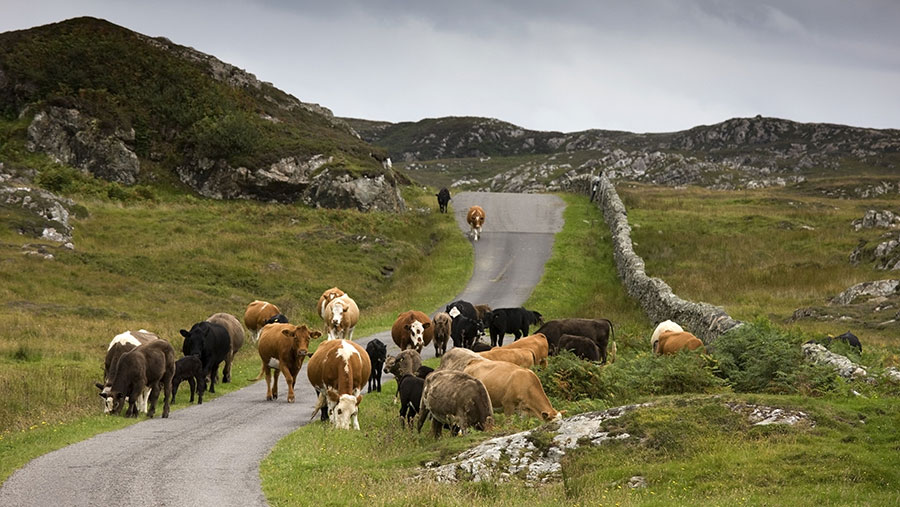Annual tax based on land value proposed by Scottish government
 © Design Pics Inc/REX/Shutterstock
© Design Pics Inc/REX/Shutterstock
A form of taxation based on land value will affect Scottish landowners, developers, forestry businesses and farmers if implemented.
A Scottish National Party decision to explore the potential for a land value tax could “set alarm bells ringing” among farmers, an opposition MSP has argued in parliamentary questions at Holyrood.
The Scottish Land Commission has been instructed by the government to investigate the tax as part of a wider piece of research on land reform issues.
The taxation would raise public revenue through an annual charge based on the rental value of land, typically levied against the unimproved value of that land, not taking into account any buildings, services or infrastructure.
See also: The land market in your area: Scotland
Shadow rural economy secretary Peter Chapman said the prospect of such a level could be “catastrophic” for farm incomes.
Andrew Thin, chairman of the Scottish Land Commission, said: “People usually see land value taxes as a potential replacement for some existing taxes or as a way to incentivise particular land use outcomes in both urban and rural contexts.
“The Land Commission has commissioned initial work to investigate international experience in land value taxes to inform policy discussions in Scotland. The work will also assess the potential of land value taxation to drive increased economic, social and cultural value from our land.
“Following completion of this initial report in June 2018, we will be engaging widely with stakeholders to discuss the potential role of land value taxation in Scotland.”
Who will it affect?
Sarah-Jane Laing, executive director of Scottish Land and Estates, which represents landowners, said: “We would like to have seen more consideration given in this project tender to the impact of any form of land value taxation on business and will press for more weight to be given to this during any consideration of land value tax.
“The introduction of land value tax could affect a wide range of land-based businesses across Scotland, not simply ‘estates’ or ‘landowners’. This could have an impact on housing developers and providers, forestry businesses and farmers.
“Rural businesses, which invest heavily across Scotland, are already subject to a very well established and complex tax regime. Taxation must be considered in the round rather than looking at just one tax vehicle.”
‘Further disadvantages for Scotland’
Andrew Wood, partner with property consultant Bidwells, said this plan would increase food production costs and put Scotland at a further disadvantage for doing business and securing investment.
He added: “The key industries of food production and tourism will continue to be areas that suffer as a result of this type of tax policy.
“It will clearly have an impact on farming businesses but it is highly dependent on how the tax would be structured and applied.”
